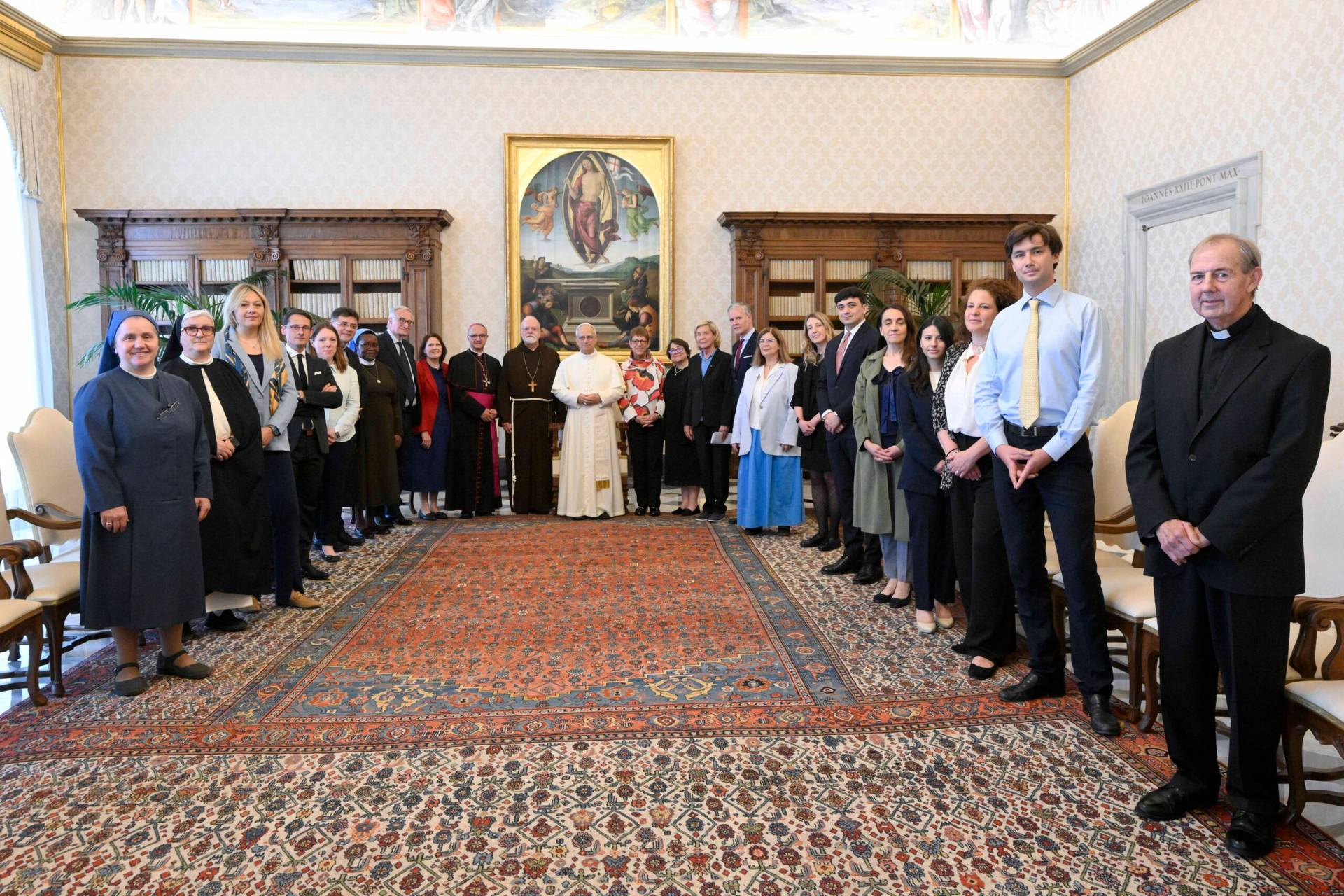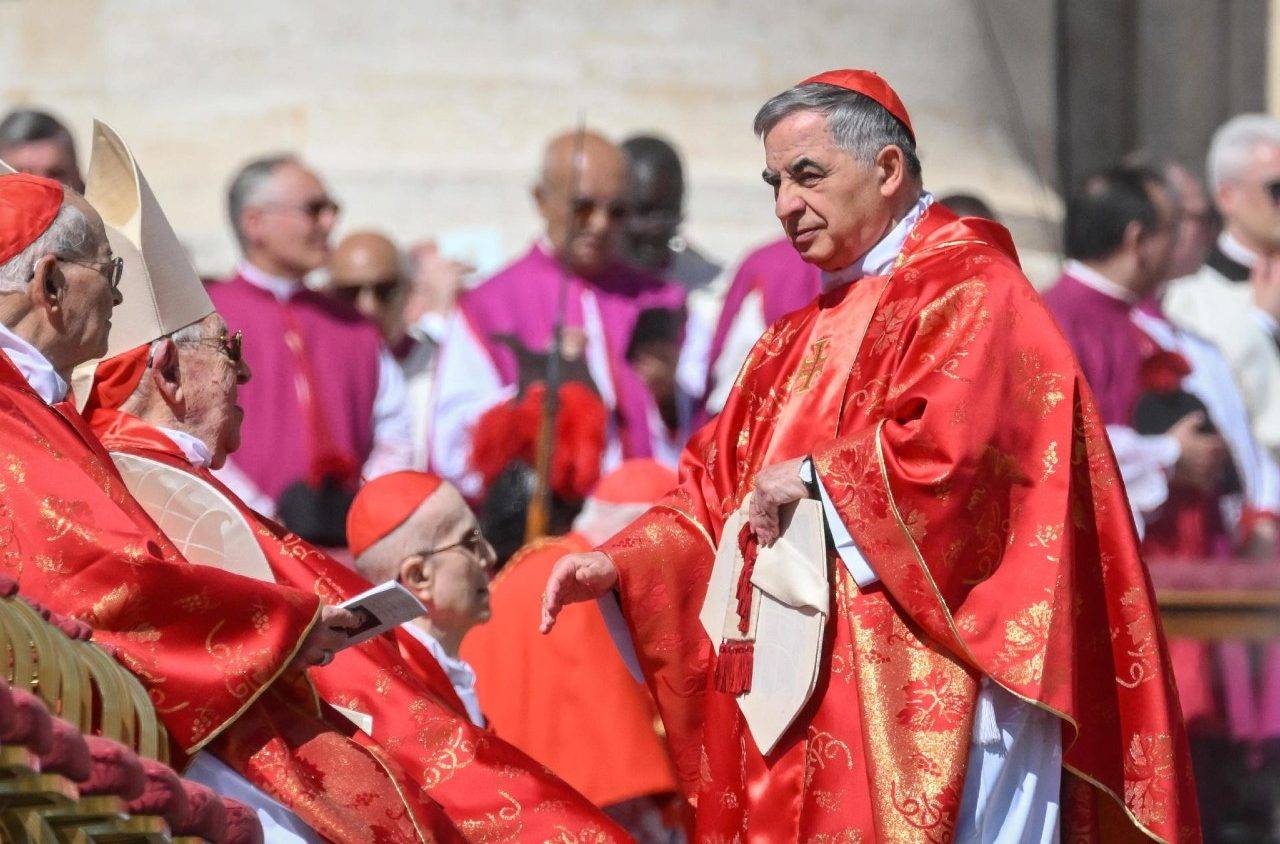Yesterday’s big Catholic news in the States was the election of Archbishop Joseph Naumann of Kansas City, Kansas, over Cardinal Blase Cupich of Chicago as chair of the Committee for Pro-Life Activities at the U.S. bishops’ fall meeting.
It was the tightest vote of the six races for committee chairs at the 2017 meeting, with Naumann prevailing 96-82. Going in the thought was that Cupich might have the edge, in part because of the bishops’ tendency to choose cardinals to lead the committee to give it a higher profile.
RELATED: In a surprise, Naumann elected over Cupich as new head of U.S. bishops’ pro-life committee
In many media outlets, including Crux, the vote was presented in part as a referendum on the broader direction of the U.S. bishops in the Pope Francis era, indicating a preference for a more conservative line. There’s certainly something to be said for that reading, since Naumann and Cupich do seem to embody quite different options, and not just in their approach to pro-life advocacy.
On the other hand, before applying an exclusively political lens to the outcome – as if it were somehow a “no” vote to the entire Pope Francis agenda, sort of the U.S. bishops’ equivalent of Brexit – there probably are a few other factors to consider.
First of all, a vote within the U.S. bishops’ conference, like a papal conclave, is democracy of a sort, but with an extremely limited electorate. This isn’t a U.S. congressional race; it’s more akin to the election of officers for a social club, or maybe a department chair at a university, where only people who all know each other, and who have to be able to work with each other, cast ballots.
As a result, winners and losers aren’t always determined by where they stand on issues so much as whose friends they are, how much people like them, and their ability to get along with a wide range of personality types.
In an English department, for instance, at one level the race may be between an advocate of strict literalism and a deconstructionist, but debates over literary theory rarely drive the outcome. Instead, it’s perceptions of which one will lend me an ear when I need a new TA or time off to work on a book, which one would support me if there’s ever a student complaint, who’s going to play fair with office and parking spaces, etc., not to mention who I like to sit down over a beer with after faculty meetings versus who’s always struck me as a cold fish.
In other words, it’s often the triumph of the personal over the political, and there’s always an element of that in the small world of the bishops’ conference too.
Second, the bishops generally like to reward loyalty and commitment to the conference itself, and when it comes to the Committee on Pro-Life Activities, Naumann brings it in spades.
From 1984 to 1995, then-Fr. Naumann served as the Archdiocesan Pro-Life Coordinator in the Archdiocese of St. Louis. He’s a longtime member of the USCCB’s Committee on Pro-Life Activities and always played an extremely active role in the group, willing to take on whatever assignment came down the pike.
As a result, some bishops may have felt that, quite apart from his politics, Naumann simply had earned the right to take over leadership of the committee. If that’s a referendum on anything, it may be more about the value of having paid one’s dues than anything else.
Third, there’s a time-honored tradition of local bishops and bishops’ conferences trying to support the popes they serve where they’re strong, but also trying to plug gaps in areas where they’re perceived to be weak, or paying special attention to things that don’t appear to loom large in Rome on a given pope’s watch.
For instance, during the late 1980s and early ’90s, the U.S. bishops launched an ambitious effort to produce a pastoral letter on women, the preparation for which featured a series of listening sessions with women all around the country. The project eventually foundered, but part of the idea was Pope John Paul II, for all his many gifts, sometimes had an image problem with women, especially in the cultures of the affluent West most heavily influenced by feminism.
Most of the U.S. bishops who backed the idea didn’t understand it as an anti-John Paul II uprising. Instead, they saw it as a way to complement what was coming from Rome, reaching out to a particular group that sometimes felt neglected and misunderstood.
The bishops understood what they were doing, in other words, as an exercise in balance, and popes often recognize the need for it too — John Paul, for instance, named Italian Cardinal Agostino Casaroli as his Secretary of State precisely because Casaroli was a champion of Ostpolitik, while John Paul knew he was going to lay down challenges to the Communist system. He wanted somebody to keep him rooted while he pushed the envelope.
In a similar vein, some bishops in the States today might be inclined to think that Francis has been great on multiple fronts, but one group that often feels a bit left out of the party is composed of members of the activist pro-life community – not everybody, naturally, but a strong enough share to be noticeable.
Electing Naumann, who’s got impeccable pro-life credentials (so much so that some observers see him as a culture warrior), in effect is a way of telling the pro-life folks, “We’ve still got your back.” In other words, if there was a message in this vote, it wasn’t necessarily, or exclusively, directed at Francis.
To the extent such considerations figured in Monday’s choice, therefore, it’s more complicated than a simple “yes/no” on the Francis papacy.
As a footnote, it will be interesting to watch Cupich’s attitude towards the bishops’ conference going forward. Over the years, prelates (of both left and right) nominated for various jobs but not elected sometimes ended up withdrawing from the conference a bit, perhaps thinking, “There’s not much for me here, so I’ll do my own thing.”
Chicago long has been a focal point for national leadership in the American Church, and part of Francis’s thinking in placing Cupich in the Windy City likely was for him to play that role now. What’s hard to assess after Monday, however, is whether Cupich’s destiny over time, like other Chicago cardinals before him, still is to remake the conference in his own image – or, whether he’ll try to envision a new way of leading the U.S. church in a social media age, one that doesn’t require bureaucracy, or episcopal consensus, to sustain itself.















